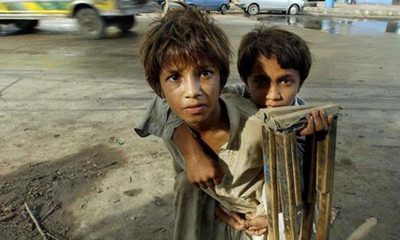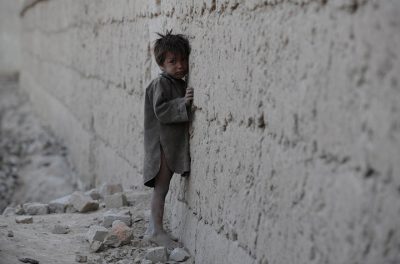Jewel Samad/AFP
By
Zeeshan A. Shah
On August 30th every year, the world marks the International Day of the Disappeared, many countries around the world falling back to recall the gravity of the crisis – a shocking and terrifying experience that some of us went through in our lives; the loss of our precious children. No one knows where they went. Every year, the world remembers the loss and recalls the days of fear, never to be forgotten. Each time, we shiver when we think of those Forgotten Ones.
Over 600 children have gone missing in Pakistan, as a series of abductions and kidnappings have occurred across the country. The event has sent shockwaves across the nation, deeply impacting the crisis that has escalated. This epidemic of child kidnapping, abduction or whatever else we may call it, is appalling and horrific. Parents are shocked and devastated as the government struggles to find a quick fix while Human Rights activists are calling the government to action.
According to reports, over 1272 children went missing in 2011 from which 1262 children were recovered. So far in 2016, over 767 children have gone missing and the recovery drive is under way. The hysteria is immense. The highest reported cases have risen from Punjab, then followed by the Sind Province. In Karachi, one of the largest cities in the world, we have seen a tremendous decline after the CPLC– Citizens Police Liaison Committee went ahead on a series of investigative efforts. However, the situation has now recently become more alarming. Child Abduction still continues to be a large problem in big cities like Karachi and Lahore, perhaps due to the population size as well as many under privileged children being homeless and on the streets, abandoned by families.
I recall an incident many years ago when a child went missing from the Zoo in Karachi. His name was Tasha. Loudspeaker announcements echoed that day as we had all gone for a picnic there with families. We were told that the child was standing by the monkey cage, very happy and fascinated while parents stood close by. A woman followed him somewhere as he ran off to an ice cream stall and she picked him up in her black cloak/chador. After almost 200 days, a local NGO got in touch with them and advised them on the matching description of the person under suspicion. Later, they recovered the boy along with two other children from a faraway place in the city. This made newspapers in 2006 but was quickly forgotten under a heap of crime waves in the city at the time.
In a country where poor children are maltreated, abused and smuggled for money, the law is partial. The same rules do not apply to the under privileged segments of society where the law enforcement authorities ignore and sometimes even fail to recognize these disappearances as abductions. Most children run away from homes as they reach the age of 10 or higher, usually due to troubled home life, lack of love and affection, sexual harassment by relatives, malnutrition or simply physical abuse by parents. A lot of them are picked up by the local Mafias, who put them out of the streets to beg or sell them at a price to work for others as bonded labor.
Pakistan has one of the worst records in terms of child labor and malpractices that support illegal child bondage. In addition, a lot of these missing children are later found murdered or strangled elsewhere in the city. The killing sprees have never ceased.
While the country puts its radar on Politics and Elections, it is blatantly ignoring one of the most severe high impact and critical issues that is considered a high priority in almost every other country of the world. Law and order crisis grips Pakistan identifying the colossal government failure and inaction to curb this epidemic.
Strangely in Pakistan, a missing child is not an offence and the police are not legally bound to lodge a FIR. This is not only horrifying for a country that holds a constitution that upholds the protection of its citizens, yet so little is being done to ensure that the most basic citizens are given safety and security on our own motherland. The real problem in the country or the crux of the matter is the “Inability to access the Legal System” as it is only being used to serve a certain elite class of people in the country and is openly transparent for accessibility for the majority. With so little access to Justice the local communities are always helpless and are losing the battle.
According to the Pakistan Penal Code Section 364-A, kidnapping or abducting a child under the age of 14 is punishable by death or with imprisonment for life or vigorous imprisonment for not less than 14 years. Yet it is difficult to ensure justice is granted due to financial and moral corruption as mostly the Police deliberately fail to assist as the country operates on connections or money, the poor segments of society having neither. It is imminent that such crimes are rectified through stern legal action through the courts so that the majority of people seeking justice do not end grieving for life without any support from the State. The poor people have rights too.
According to a former UNDP Director for Pakistan “You cannot have an elite that takes advantage of very cheap and uneducated labor when it comes to making money, and when it is time to party it is found in London, and when it’s time to buy things it is in Dubai, and when it’s time to buy property it invests in Dubai or Europe or New York. The elite needs to decide do they want a country or not.” The former director, who spent four years in Pakistan, was also critical of the landowners. “I have visited some very large landowners who have exploited the land for centuries, paid nearly zero money for the water, and sometimes hold people in bondage.”
This problem has been there for years but has been underrated and under reported by the government as a priority, the overall culture of the corrupt supporting it as this is a booming illegal business in Pakistan where children are sold for sex, drugs, beggary and other high crimes. We need to devise a collective plan to take the power to the powerless and justice to the weak. The law needs to be revisited and law makers need to be more productive to help the poor instead of relying on the elitist mentality.
Faces wear masks. Unless justice is dispensed effectively and laws that are drafted are put into action, there is little hope for our children and their future in the country. Safety and security remains a major threat to the country and everything cannot be solved by the Army. If the civilian arm is weak, we must cut it off completely as infection is spreading very fast across. We need faster more efficient replacement in the ranks and an honest selection criteria to get people to come and work on these issues and produce results. Pakistan has micro issues that need attention.
We do not know the exact location of the culprits nor will we ever know. But we must ensure that a negative precedent is not created on this matter where people start taking this illegal and horrific crime of Child Abduction and Child Kidnapping an excusable offense. Repeat offenders must be made examples of in front of the nations while the real culprits who are running these Mafia cells and businesses must be exposed by the Media and Civil Society.
In the end, no one is above the law.




My heart goes out for them. In my opinion the problem is poverty, illiteracy and law and order situation. Because of these reasons there is a growing frustration in the society. The reason for poverty is also that the middle classes are eradicating from Pakistan, who are a very essence of the society. This leaves only the rich and the pover in the country. There is a huge network of problems which may take few decades to sort out if a very hard work is out in.